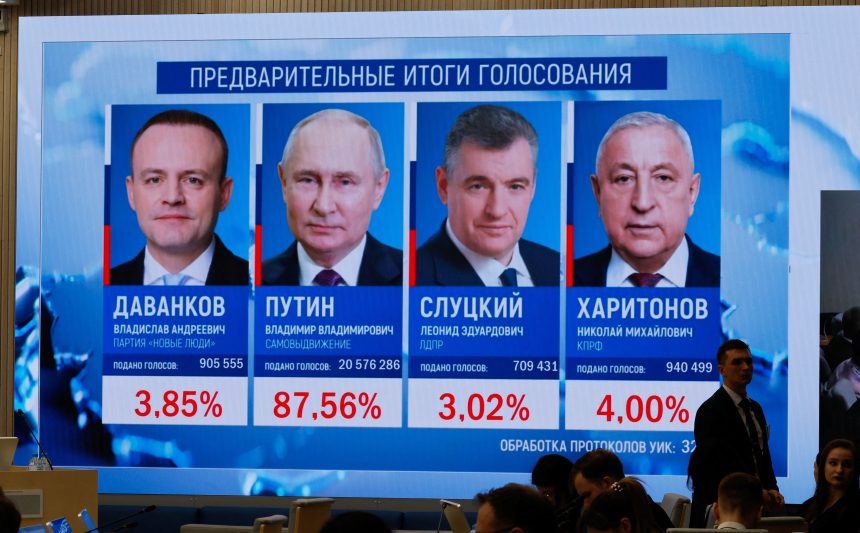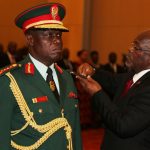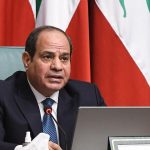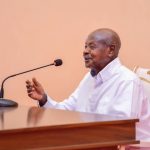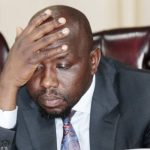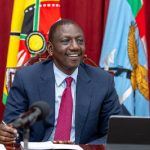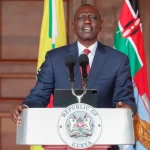President Vladimir Putin won a record post-Soviet landslide in Russia’s election on Sunday, cementing his grip on power though thousands of opponents staged a noon protest at polling stations and the United States said the vote was neither free nor fair.
For Putin, a former KGB lieutenant colonel who first rose to power in 1999, the result is intended to underscore to the West that its leaders will have to reckon with an emboldened Russia, whether in war or in peace, for many more years to come.
The early result means Putin, 71, will easily secure a new six-year term that would enable him to overtake Josef Stalin and become Russia’s longest-serving leader for more than 200 years.

Read Also:
Tanzania & Russia Forge Direct Flight Partnership, Confirms Russian Agency – National News Expressnationalnewsexpress.com
France Summons Russian Ambassador Alexey Meshkov Over Aid Worker Deaths In Ukraine – National News Expressnationalnewsexpress.com
Russia Reopens Embassy In Burkina Faso After 31 Years – National News Expressnationalnewsexpress.com
Putin won 87.8% of the vote, the highest ever result in Russia’s post-Soviet history, according to an exit poll by pollster the Public Opinion Foundation (FOM). The Russian Public Opinion Research Centre (VCIOM) put Putin on 87%. First official results indicated the polls were accurate.

Communist candidate Nikolai Kharitonov came second with just under 4%, newcomer Vladislav Davankov third, and ultra-nationalist Leonid Slutsky fourth, results suggested.
“The elections are obviously not free nor fair given how Mr. Putin has imprisoned political opponents and prevented others from running against him,” the White House’s National Security Council spokesperson said.
The election comes just over two years since Putin triggered the deadliest European conflict since World War Two by ordering the invasion of Ukraine. He casts it as a “special military operation”.
War has hung over the three-day election: Ukraine has repeatedly attacked oil refineries in Russia, shelled Russian regions and sought to pierce Russian borders with proxy forces – a move Putin said would not be left unpunished.
While Putin’s re-election was not in doubt given his control over Russia and the absence of any real challengers, the former KGB spy wanted to show that he has the overwhelming support of Russians. Nationwide turnout was 74.22% at 1800 GMT when polls closed, election officials said, surpassing 2018 levels of 67.5%.
Supporters of Putin’s most prominent opponent, Alexei Navalny, who died in an Arctic prison last month, had called on Russians to come out at a “Noon against Putin” protest to show their dissent against a leader they describe as a corrupt autocrat.
There was no independent tally of how many of Russia’s 114 million voters took part in the opposition demonstrations, amid tight security involving tens of thousands of police and security officials.
Reuters journalists saw an increase in the flow of voters, especially younger people, at noon at polling stations in Moscow, St Petersburg and Yekaterinburg, with queues of several hundred people and even thousands.
Some said they were protesting, though there were few outward signs to distinguish them from ordinary voters.
As noon arrived across Asia and Europe, crowds hundreds strong gathered at polling stations at Russian diplomatic missions. Navalny’s widow, Yulia, appeared at the Russian embassy in Berlin to cheers and chants of “Yulia, Yulia”.
“We showed ourselves, all of Russia and the whole world that Putin is not Russia (and) that Putin has seized power in Russia,” said Ruslan Shaveddinov of Navalny’s Anti-Corruption Foundation. “Our victory is that we, the people, defeated fear, we defeated solitude – many people saw they were not alone.”
At least 74 people were arrested on Sunday across Russia, according to OVD-Info, a group that monitors crackdowns on dissent.
Over the previous two days, there were scattered incidents of protest as some Russians set fire to voting booths or poured green dye into ballot boxes. Opponents posted some pictures of ballots spoiled with slogans insulting Putin.
But Navalny’s death has left the opposition deprived of its most formidable leader, and other major opposition figures are abroad, in jail or dead.
The West casts Putin as an autocrat and a killer. U.S. President Joe Biden last month dubbed him a “crazy SOB”. The International Criminal Court in the Hague has indicted him for the alleged war crime of abducting Ukrainian children, which the Kremlin denies.
Ukrainian President Volodymyr Zelenskiy said on Sunday that Putin wanted to rule forever. “There is no legitimacy in this imitation of elections and there cannot be. This person should be on trial in The Hague. That’s what we have to ensure.”
Putin portrays the war as part of a centuries-old battle with a declining and decadent West that he says humiliated Russia after the Cold War by encroaching on Moscow’s sphere of influence.
“Putin’s task is now to imprint his worldview indelibly into the minds of the Russian political establishment” to ensure a like-minded successor, Nikolas Gvosdev, director of the National Security Program at the Philadelphia-based Foreign Policy Research Institute, told the Russia Matters project.
“For a U.S. administration that hoped Putin’s Ukraine adventure would be wrapped up by now with a decisive setback to Moscow’s interests, the election is a reminder that Putin expects that there will be many more rounds in the geopolitical boxing ring.”
Russia’s election comes at what Western spy chiefs say is a crossroads for the Ukraine war and the wider West.
Support for Ukraine is tangled in U.S. domestic politics ahead of the November presidential election pitting Biden against his predecessor Donald Trump, whose Republican party in Congress has blocked military aid for Kyiv.
Though Kyiv recaptured territory after the invasion in 2022, Russian forces have made gains after a failed Ukrainian counter-offensive last year.
The Biden administration fears Putin could grab a bigger slice of Ukraine unless Kyiv gets more support soon. CIA Director William Burns has said that could embolden China.
Voting also took place in Crimea, which Moscow took from Ukraine in 2014, and four other Ukrainian regions it partly controls and has claimed since 2022. Kyiv regards the election on occupied territory as illegal and void.

